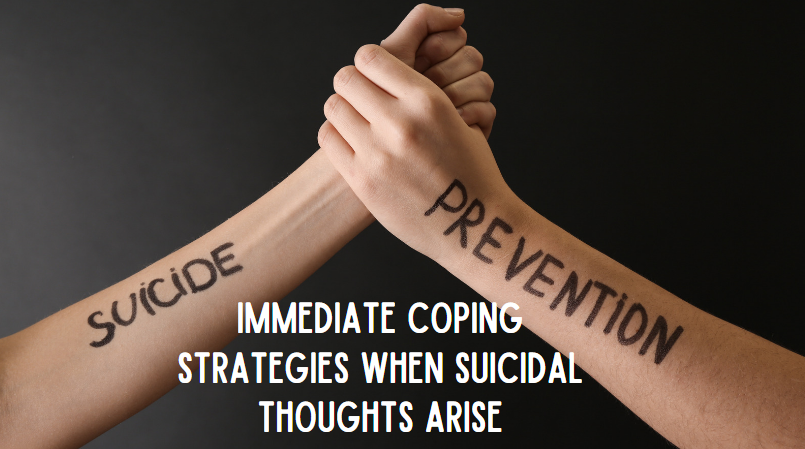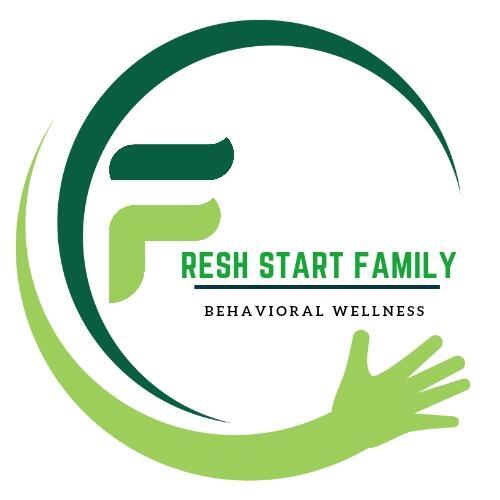If you are experiencing thoughts of suicide, please know that you are not alone. Thoughts of suicide can feel overwhelming and isolating, but recognizing them is the first step toward healing. Many people have been where you are now, and there is hope for brighter days ahead.
The purpose of this article is to provide you with guidance, coping strategies, and hope. By offering practical advice and resources, we aim to support you through these dark times and empower you to seek the help you need.
Mental health awareness is crucial, especially when facing suicidal thoughts. Reaching out for help is a brave and vital step. Together, we can break the silence and find a path to recovery.
What Are Suicidal Thoughts?
Suicidal thoughts are often a result of deep emotional pain and despair. These thoughts can feel overwhelming and may occur when someone is experiencing a sense of hopelessness, worthlessness, or isolation. While these feelings are intense, they don’t define who someone is—they are a sign that the person is struggling with emotional or mental health challenges and needs support to navigate through them.
Why Do People Experience Thoughts of Suicide?

Suicidal thoughts can be triggered by a variety of factors, each of which contributes to the overwhelming sense of emotional distress. Common triggers include:
- Depression: Persistent sadness, low energy, and feelings of worthlessness can make life feel unbearable.
- Anxiety: Constant worry, panic attacks, or fear of the future can push individuals toward feelings of helplessness.
- Grief: The loss of a loved one can lead to profound sadness, loneliness, and a sense of purposelessness.
- Trauma: Experiencing abuse, violence, or significant emotional pain can leave lasting emotional scars.
- Chronic illness: Long-term physical health issues can lead to feelings of frustration, isolation, and mental exhaustion.
- Major life changes: Divorce, job loss, or financial difficulties can trigger deep emotional instability.
It’s important to remember that suicidal thoughts are not a reflection of one’s worth or abilities. Instead, they are a symptom of overwhelming emotional pain, signaling the need for professional help and support.
The Difference Between Suicidal Ideation and Planning
Suicidal ideation refers to thoughts of ending one’s life, but it doesn’t necessarily mean that someone has a plan to carry out these thoughts. Some individuals may simply think about suicide without forming a detailed plan. However, it’s crucial to treat these thoughts with seriousness, as they indicate deep emotional distress and a need for immediate support to prevent potential harm.
Immediate Coping Strategies When Suicidal Thoughts Arise

When suicidal thoughts emerge, it’s important to act immediately and prioritize your safety. These strategies can provide temporary relief and help you manage overwhelming emotions. Though the road to healing may feel long, taking small steps can make a difference and create a path toward support and recovery.
- Commit to staying safe in this moment: Promise yourself that you will not act on these thoughts. This simple commitment can create space for help to come in and for your feelings to pass.
- Stay clear of substances like drugs and alcohol: Substance use can cloud your judgment and intensify negative emotions. Staying sober helps you think more clearly and make safer choices in a time of distress.
- Ensure your living environment is secure: Remove or secure any potential means of harm (medications, sharp objects, firearms, etc.) to lower the risk of impulsive actions.
- Engage in a distracting activity: Redirect your focus with activities that engage your mind or body, such as reading, listening to music, doing a puzzle, or drawing. These activities can help you create a mental break from overwhelming thoughts.
- Practice grounding techniques: Grounding exercises can help you reconnect to the present moment and regain control. Try mindfulness, deep breathing exercises (like inhaling deeply for four counts, holding for four, and exhaling for four), or focus on your immediate surroundings (e.g., identifying objects in the room or feeling your feet on the ground).
- Share your feelings with someone you trust: Reaching out to a friend, family member, or counselor can provide emotional support and help you feel less alone. Talking about your feelings may lighten the burden and allow others to guide you to the help you need.
How to Open Up About Suicidal Thoughts to Someone

Reaching out and opening up about suicidal thoughts can feel incredibly difficult, but it’s an essential step toward healing. Sharing your feelings with someone you trust can help reduce the burden of isolation and connect you with support. It’s okay to be vulnerable; your safety and well-being matter.
- Choose a trusted person: Start with someone you feel comfortable with, such as a close friend, family member, or therapist. They must be someone you believe will listen without judgment.
- Be honest and direct: Being straightforward about what you’re experiencing is okay. You can say something like, “I’ve been feeling overwhelmed and having thoughts of ending my life. I don’t know what to do, and I need help.”
- Let them know you need support: Make it clear that you’re reaching out because you need emotional support or guidance, not because you expect them to have all the answers.
- Acknowledge the difficulty of sharing: It’s okay to admit that talking about these thoughts is tough. You might say, “This is hard to say, but I’m struggling right now.”
- Give them time to process: Understand that the person you’re opening up to may need a moment to absorb the information. They may feel overwhelmed, too, but their initial reaction is often out of concern for your safety.
- Ask for what you need: Be specific if you’re unsure of what would help. You might need someone to sit with you, help you find a professional, or listen without offering solutions.
The Importance of Seeking Professional Help

Experiencing suicidal thoughts can feel isolating, but seeking professional help is crucial for managing these feelings. Mental health professionals like therapists, counselors, and psychiatrists offer the support and tools needed for safe and long-term healing. Seeking help is a sign of strength, showing that you understand you don’t have to face these challenges alone. Professionals can provide short-term relief and long-term solutions to foster recovery and emotional well-being. What Professionals Can Offer:
1. Therapy and Counseling
Therapy helps you understand and work through emotional pain. Different approaches cater to specific needs:
- Cognitive Behavioral Therapy (CBT): Focuses on identifying and challenging negative thoughts, helping you control emotions and behaviors. Effective for depression, anxiety, and suicidal ideation.
- Dialectical Behavior Therapy (DBT): A form of CBT for managing intense emotions and self-destructive behaviors. Develops skills in emotional regulation, distress tolerance, mindfulness, and interpersonal effectiveness.
Therapy offers a safe space to express emotions, develop coping strategies, and gain insights. It promotes healthier mental habits and self-worth.
2. Medication Options
Medication can be essential for managing suicidal thoughts and mental health conditions:
- Antidepressants: SSRIs and SNRIs balance brain chemicals to stabilize mood and reduce suicidal ideation, particularly when used with therapy.
- Mood Stabilizers: Useful for mood disorders like bipolar disorder, these medications balance mood swings, reducing the intensity and frequency of depressive or manic episodes.
How to Support Someone Else Who is Struggling

Supporting someone through a difficult time can be challenging, but offering the right support can make all the difference in their recovery. It’s important to approach the situation with compassion, understanding, and patience.
1. Listening and Offering Validation
When someone is struggling, it’s crucial to listen without judgment. Create a safe space where they feel heard and accepted. Encourage them to express their feelings and resist the urge to offer solutions immediately. Sometimes, simply saying, “I’m really sorry you’re feeling this way, and I’m here for you,” can help them feel understood. Reassure them that their emotions are valid and not something to be ashamed of. Your empathy can provide comfort and remind them they are not alone.
2. Knowing When to Seek Help for Someone Else
If someone is talking about suicide or showing signs of serious distress, it’s important to recognize when professional help is needed. Warning signs include:
- withdrawing from others,
- expressing feelings of hopelessness or
- having a plan for self-harm.
If you believe they are at risk of immediate harm, it’s crucial to act quickly. Contact a crisis hotline or emergency services, and if possible, escort them to a mental health professional or the emergency room. Don’t leave them alone during this time—your support can save their life.
3. Avoiding Unhelpful Responses
While it’s natural to want to help, certain phrases can unintentionally minimize their pain. Avoid dismissive comments like, “Just think positive,” or “You’ll get over it.” Instead, focus on listening and offering emotional support. Let them know that their struggles are real and worthy of attention and that you are there for them without judgment. Your presence and care can be a lifeline during this difficult time.
Developing Long-term Coping Mechanisms

Building effective long-term coping mechanisms is essential for maintaining mental well-being and preventing the recurrence of suicidal thoughts. By integrating these strategies into your daily life, you can develop resilience, improve emotional regulation, and enhance your overall quality of life.
1. Establish a Routine
Creating a consistent daily schedule can provide structure and a sense of normalcy. This includes setting regular times for waking up, eating meals, exercising, and sleeping. Routines can help reduce anxiety and provide stability.
2. Practice Mindfulness and Meditation
Engage in mindfulness exercises or meditation to stay grounded in the present moment. These practices can help you manage stress, reduce anxiety, and increase self-awareness. Apps and online resources can guide you through these exercises.
3. Engage in Physical Activity
Regular physical exercise releases endorphins, improving mood and reducing stress. Find an activity you enjoy, such as walking, yoga, swimming, or another form of exercise, and incorporate it into your routine.
4. Build a Support Network
Foster connections with family, friends, support groups, or mental health communities. Having a network of supportive individuals can provide emotional support, reduce feelings of isolation, and offer practical help when needed.
5. Set Realistic Goals

Identify and set achievable goals for yourself, both short-term and long-term. Break larger tasks into smaller, manageable steps and celebrate your progress. This can help build a sense of accomplishment and motivation.
Final Thoughts
There is always hope and a way forward. You matter and deserve support, care, and a future full of possibility. No matter how overwhelming life feels, reaching out and taking small steps toward healing can lead to a brighter tomorrow.
If you or someone you know is struggling, remember that emergency resources are available. Contact a crisis hotline or a mental health professional for immediate support. Share this article with others who may benefit from it—it could be the encouragement they need to seek help.
When the weight of things feels heavy, opting for professional help is an important step. Start Behavioral Wellness comprises trusted professionals ready to support and guide you through this journey. You can call us at 910-436-6495.

